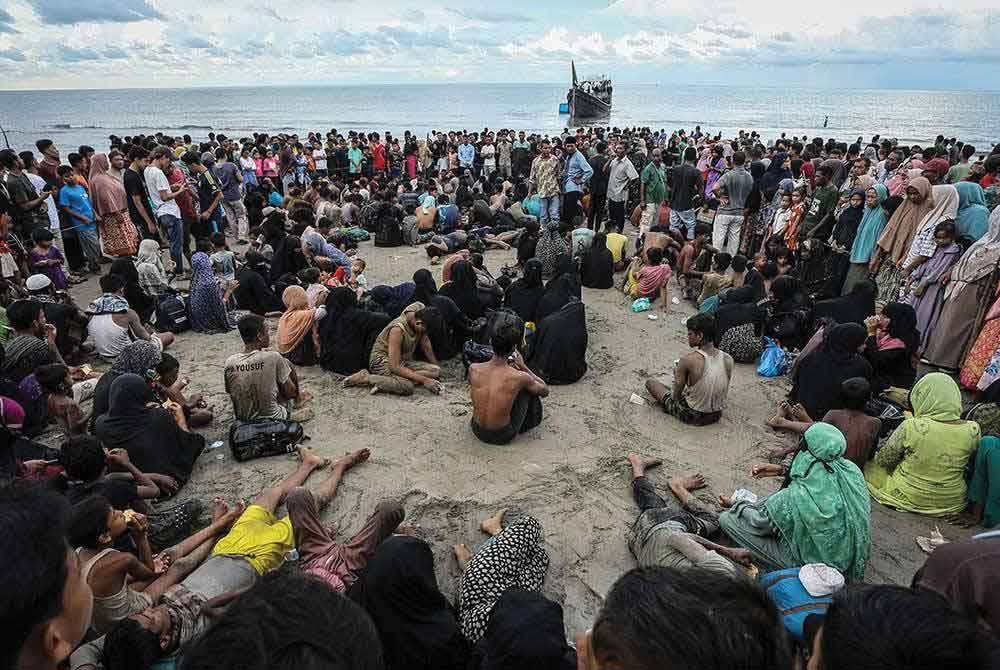Rohingya: 'Malaysia lacks firmness displayed by Indonesia' - Lawyer


Until November 2023, the number of Rohingya refugees in Malaysia has doubled to 107,520.
SHAH ALAM - It is impossible for Malaysia to take proactive and firm steps in openly rejecting Rohingya refugees as seen in Indonesia because the minority group already has a strong network in the country.
Lawyer Norman Fernandez said that from the United Nations High Commissioner for Refugees (UNHCR) to the ministry level, numerous parties were protecting the interests of Rohingya in Malaysia, preventing anyone from daring to reject the refugee group on a large scale.
"For now, I don't see Malaysia following what is happening in Indonesia.
"The rejection of Rohingya refugees in Aceh is due to their uncivilised behavior, stubbornness, demands for citizenship and unwillingness to respect Indonesian culture and ethics, leading to a local uprising.
"The Indonesian people have also witnessed what happened in Malaysia when this group was widely accepted, causing negative implications for the country.
"Unlike the situation in Indonesia, Malaysians express their dissatisfaction mainly on social media," he told Sinar.
Norman stressed that the presence of human rights organisations and certain religious organisations in Malaysia playing a role in safeguarding the needs of Rohingya would further complicate the chances of repatriating the refugee community to their home country.
"In 1998, the number of Rohingya refugees in Malaysia was 8,000.
SHAH ALAM - It is impossible for Malaysia to take proactive and firm steps in openly rejecting Rohingya refugees as seen in Indonesia because the minority group already has a strong network in the country.
Lawyer Norman Fernandez said that from the United Nations High Commissioner for Refugees (UNHCR) to the ministry level, numerous parties were protecting the interests of Rohingya in Malaysia, preventing anyone from daring to reject the refugee group on a large scale.
"For now, I don't see Malaysia following what is happening in Indonesia.
"The rejection of Rohingya refugees in Aceh is due to their uncivilised behavior, stubbornness, demands for citizenship and unwillingness to respect Indonesian culture and ethics, leading to a local uprising.
"The Indonesian people have also witnessed what happened in Malaysia when this group was widely accepted, causing negative implications for the country.
"Unlike the situation in Indonesia, Malaysians express their dissatisfaction mainly on social media," he told Sinar.
Norman stressed that the presence of human rights organisations and certain religious organisations in Malaysia playing a role in safeguarding the needs of Rohingya would further complicate the chances of repatriating the refugee community to their home country.
"In 1998, the number of Rohingya refugees in Malaysia was 8,000.
***
kt comments:
The Rohingyas have never wanted to be Myanmarese (Burmese), and have been said to look down upon the local Burmese (Myanmarese). The Rohingyas were from East Bengal (now Bangladesh) and India. When they went to Myanmar (British Burma then) they lived in a region called Arakan, the historical geographical name of Rakhine State.
The Rohingyas wanted to be part of Pakistan, but Ali Jinnah rejected their request-proposal. After the rejection, (as related by Wiki), some Rohingya elders who supported a jihad movement, founded the Mujahid party in northern Arakan in 1947. The aim of the Mujahid party was to create an autonomous Islamic state in Arakan. By the 1950s, they began to use the term "Rohingya" which could be to establish a distinct identity and identify themselves as indigenous.
The term 'Rohingya' is prohibited by the current Myanmarese authorities who refer to the Indian-Bengali Muslims as 'bengali illegal immigrants'.
Thus I have little sympathy for them vis-a-vis the Myanmarese because of their lack of loyalty to Myanmar, out of their own choosing.
Malaysia has a spineless Government
ReplyDelete